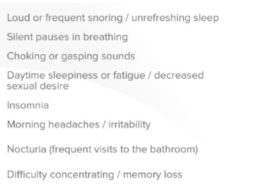
Considerations when choosing a CPAP for Sleep Apnea Therapy.
When choosing your CPAP initially it can be bewildering as to the type of machine, features and difficulties you could experience. Typically, the titration should be 2-3 nights in duration and would support you in the right mask and machine type selection.
Don’t panic if the titration was uncomfortable- it may take a month and more to get used to using a CPAP. It should be remembered that the decision for you to start using a CPAP was clinical based with you having been diagnosed for moderate to severe sleep apnea with AHI (apnea events per hour) of over 15.
A number of factors should be considered when choosing your CPAP. These includes:
- Type of CPAP: This is determined by the pressure outcome during the titration. Ideally the pressure should allow your airway to be open 90% of the time. How you respond to the pressure will determine if you can manage a Manual, Auto or BiPAP. Clinically all perform the same task. Auto and BiPAP’s support the patient in higher pressures (i.e. above 11) or if the patient needs different inhale and exhale pressures. Naturally there is a significant cost difference.
- Travel CPAP: Depending on how much you travel (incl camping) you may decide to purchase a number of accessories or a dedicated travel CPAP. Accessories can include 12V chargers (for car), additional battery power packs allowing approximately 9 hours of usage. Most travel CPAP, and battery packs do not allow humidifier usage. Hence you may lose some of your standard functionality you are used to. Travel CPAP and battery packs are expensive and have to be balanced with the usage expected. An alternate if load shedding or power failures occur is to consider investing in a “Home Inverter”. These are lower cost than a battery pack and can be used for multiple devices at home, besides the CPAP. A CPAP will require approximately 80W so a standard 600W invertor should be sufficient for a load shedding period.
- Humidified or Non Humidified CPAP: Many vendors offer humidifiers either built in or separate. The object of the humidifier is to humidify the air through heating. In areas that are at higher altitude resulting in dry air this may be required. A humidifier will greatly support you in adhering to the CPAP therapy removing issues such as dryness of the mouth/throat.
- Noise Level: The lower the CPAP noise the better for you and your partner. Mask leakage can also contribute to a higher mask/CPAP combination noise. There is a significant difference in audible noise levels from premium brands to entry brands.
- Mask combination with CPAP and Mask fitting routines: The selection of the mask that most suits you is the most important decision you will need to make. While mask fitting would have occurred at the time of the titration the selection of mask used would have possibly been limited to a single vendor. You need to ensure you have the correct mask for you to avoid mask leakage and maximising your comfort. Most vendors have automatic mask fitting routines on their CPAP allowing you to check if you develop a mask leak. Overnight the mask leak will also be monitored and if it increases the mask should be tightened and checked.
- Data storage from your CPAP therapy: All CPAP machines store data on a SD card or equivalent. This data allows recall of up to 90days information for trending, and adherence management. Besides this mass storage method , CPAP machines will show key parameters on the screen and some vendors will allow upload of trends to your mobile phone or “cloud”. The intention is to help you manage your therapy more effectively.
- Warranty replacement: Warranty is typically 2 years, but how does your supplier manage warranty- is it repair or replacement of the unit? CPAP machines have low failure rates and the trend has been to “replace” the unit automatically during warranty after a quick remote service check that can be done via the telephone/internet. Certainly with some vendors, ie Philips, this is a key differentiator and provides “peace of mind”.
- After sales service including adherence reports: You should be asking for a check of your data that has been recorded every 6 months. Some suppliers may offer this as a service allowing you to upload your data and they then return an adherence report for the last 90 days. The intention is to ensure you maintain and improve on your therapy regime allowing you to discuss with your doctor at your next visit.
- CPAP software features that support adherence. Most vendors have various software features to support the patient in using their machine. This can include allowing a ramp time to reach the maximum pressure, flex modes supporting the first use of the machine with the pressure increasing over a few nights, upgrades for manual machines allowing the base pressure to be adjusted automatically every 30 hours (ie Philips Pro), and automatic On and automatic OFF feature through sensing patient breathing. You can choose to use these features that will improve your experience, especially in the initial days of using a CPAP.
Choose a CPAP unit and CPAP mask that meets your needs, is comfortable and will support you in adhering to your CPAP therapy. You need to be using your machine 80% of nights and typically 5 hours per night to get the best clinical benefit.









Write a Comment